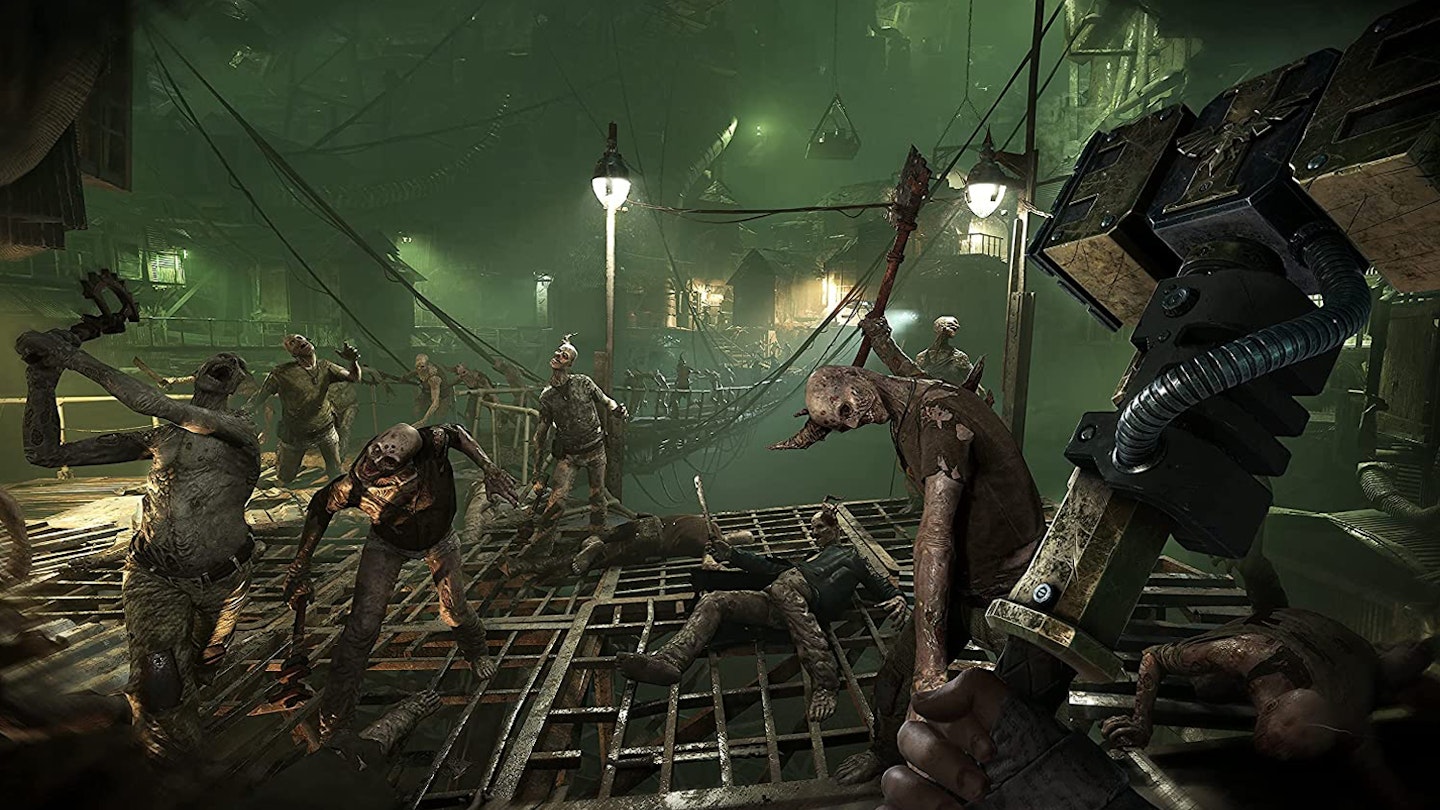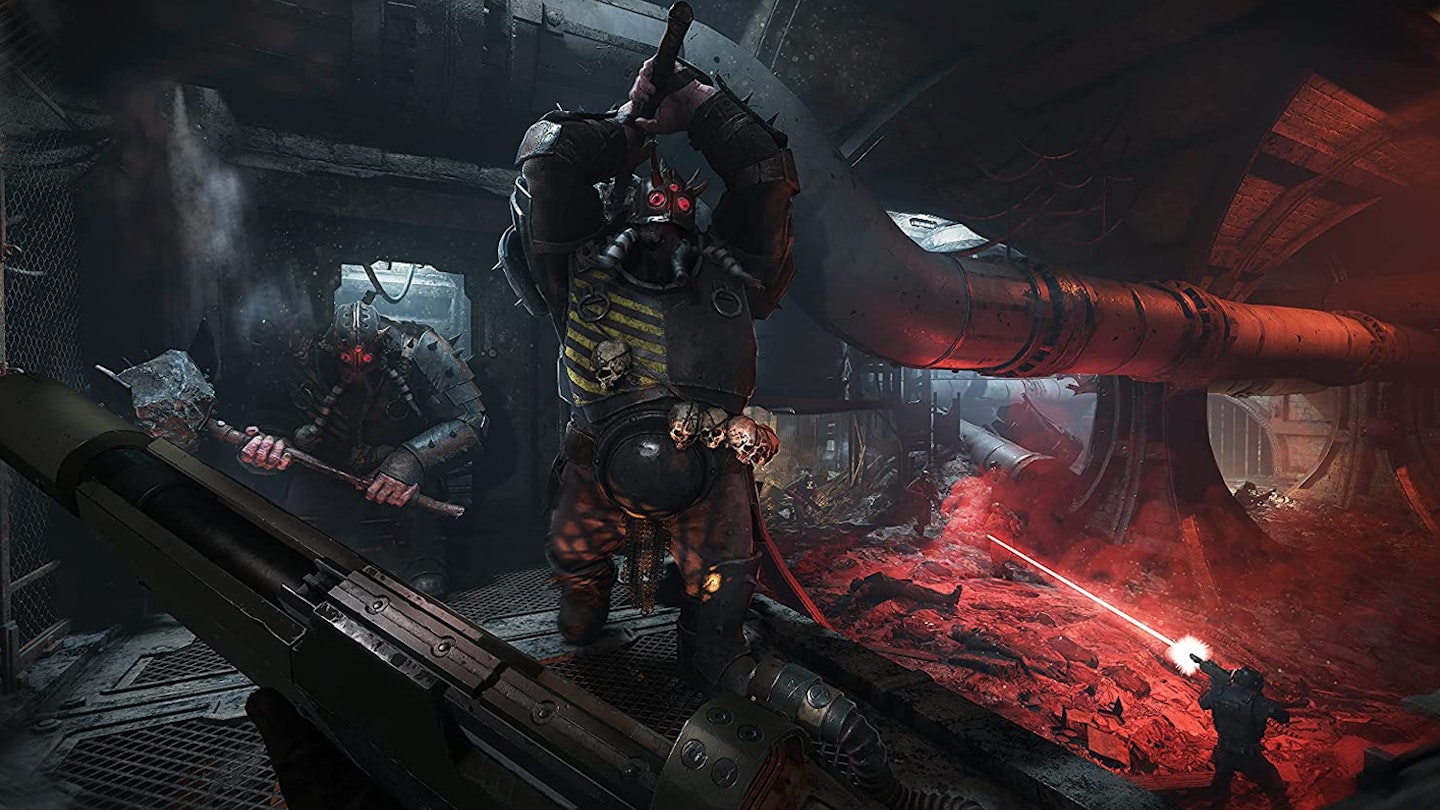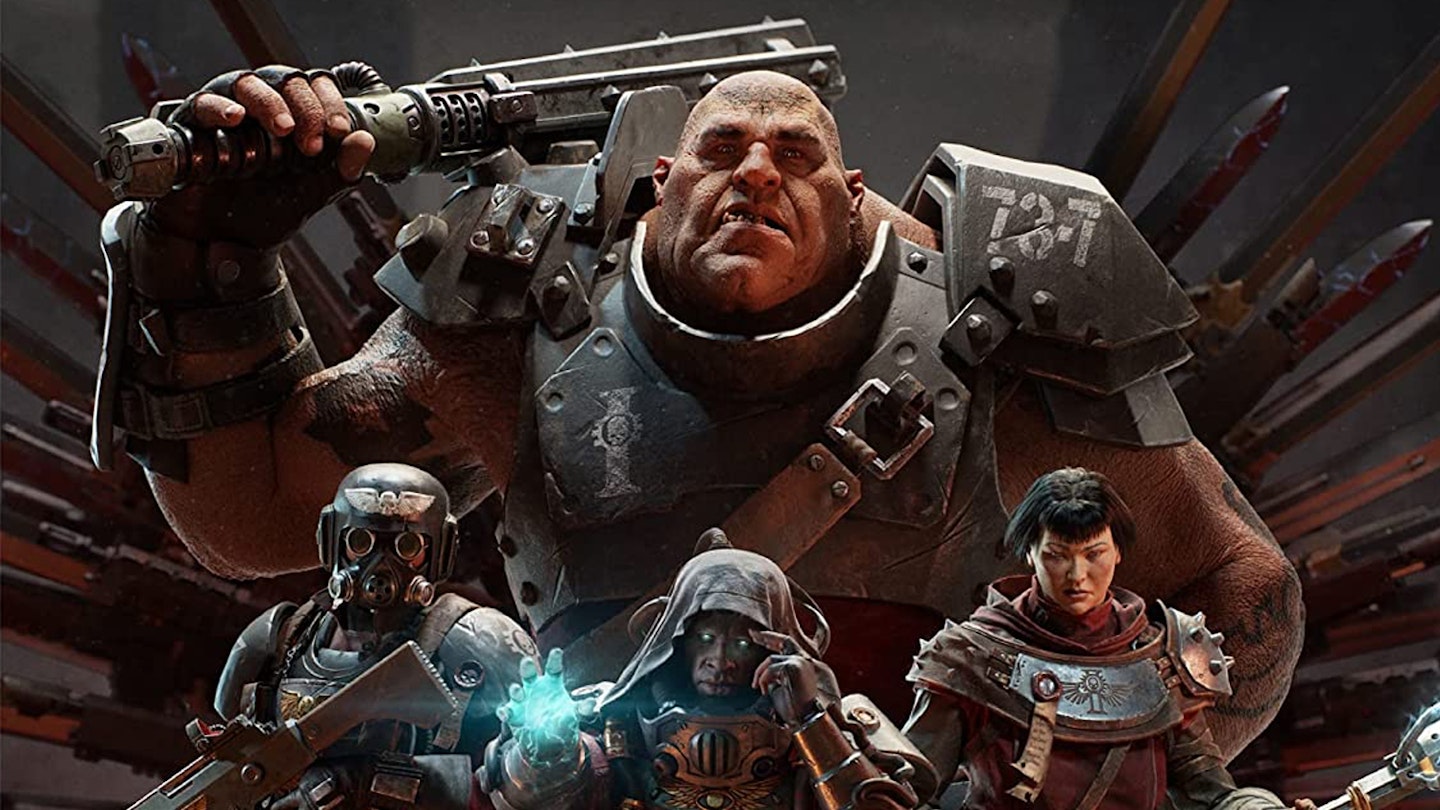Platform: PC
With the Vermintide series, developer Fatshark proved itself capable of crafting multiplayer action experiences that could appeal to Games Workshop adherents and the uninitiated alike. Now, it takes that model of four-player co-op raids from the fantasy setting of Warhammer to the grimdark future of Warhammer 40,000 and delivers, at first glance, more of the same, swapping swords and magic for space guns and psychic powers.
Look closer though and the genre shift isn’t the only difference. Just the simple inclusion of high-calibre projectile and energy weapons – both those in your possession and those wielded by your enemies – means Darktide plays noticeably differently than its predecessor. Whereas in Vermintide, you might wade into a mire of Skaven to get up close and murderously personal, here you’re more likely to be thinking about crowd control from afar while also dodging enemies’ own ranged attacks. That’s not to say you can’t rely on some brutal melee attacks too – you start out with a humble shovel put to deadly effect, while later weapons tend to offer imaginative ways to dispatch foes face to face – but you’ll more likely be juggling foes from a distance.

While both games emphasise team-based play, Darktide really focuses on the importance of balancing its player classes. Much like Left 4 Dead – to which both Vermintide and this draw comparisons – you’ll want to make use of how each character type’s skills complement the others. A soldier-type Veteran is the closest to an all-rounder, but Psykers trade physical prowess for mental powers, while a hulking Ogryn is more of a bullet sponge able to tank its way through opponents but lacking speed, and Zealots make up for lost health with sheer religious fervour. Plus, in a clever touch, whichever class you’re playing as, your personal shield will only replenish when you’re in proximity of allies. Working around the strengths and weaknesses of the whole team means that between Darktide and its predecessor, this is the closer of the two to Valve’s zombie-slaying co-op benchmark.
Darktide also benefits from a story written by long-time Games Workshop scribe and comic book maestro Dan Abnett. Recruited from jail to serve as an Inquisitorial Agent, you’ll be sent to investigate a threat to the Imperium of Man, brewing in the Tertium Hive on the planet Atoma Prime. While much of the setting, politics, and rules of the universe will remain impenetrable if you’re not already deeply embedded in 40K lore – an enduring problem for most Warhammer games, of either flavour – Abnett does an admirable job of establishing the scale of the threat and the personal stakes, even for those who don’t know their Nurgle from their God Emperor.
Part of the success here is in stepping away from the more familiar Space Marines of the franchise in favour of the less developed classes, and giving the player more investment in their character. Darktide goes beyond mere physical character creation, and has players craft backstory for them too, from personal histories to the crime that had them go to prison to begin with. It’s a great touch, bringing the convoluted 40K universe down to a more intimate level and helping players care more about their role in the world, without ever softening or betraying the feel of that universe for existing fans. There are still no good guys to be found – only varying degrees of bastard. But at least they’re your bastard.

Unfortunately, none of the evolutions in play mechanics or storytelling really change the fact that the end result is yet more horde-based gameplay, with players mowing down swarms of enemies on repeat. Even with the more inventive weaponry that you’ll gain the further you progress – each successful mission rewards you with currency and materials to improve your arsenal with – the core gameplay loop begins to grind after a while. It’s not helped by the fact that you may find yourself trekking through areas that are overly repetitive.
Of more concern, Fatshark also has live service game ambitions for Darktide, with the story and world set to grow and change along with players. In theory, it could be the next Destiny 2, with a meta of considerable scope. In practice, it currently means a host of microtransactions for cosmetics which, while entirely optional, are worryingly high for real-money purchases. Other cosmetic options can be purchased with in-game currency, but there’s a sense that the ‘cool’ stuff is behind a literal paywall.
Darktide is also phenomenally slow to load anything, even running off an SSD install. That isn’t exaggeration or hyperbole – this is ‘play a full round of Marvel Snap while waiting for a level to load’ slow. When the active sections of Darktide thrive on speedy combat and largely succeed in delivering such experiences, it’s even more damning that it takes forever to get into those encounters.
There’s real potential here, though, with solid, well balanced co-op play, and a story that could win over even the Warhammer-averse. If Fatshark can improve performance with future patches, throw in more varied missions, and don’t go overboard with the microtransactions, Darktide could escape its franchise trappings and be a real multiplayer contender. In its current form, however, it’s merely a solid example of the genre.
